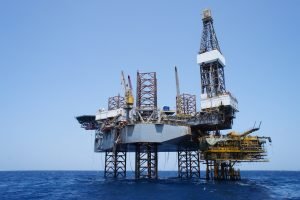With U.S. oil production continuing to painfully decline, thousands of workers on offshore vessels have recently found themselves underemployed—or out of work altogether. Fortunately, the tides are finally turning. Global financial analysts at investment firm Goldman Sachs are predicting a major comeback for the oil and gas industries, and the timing could not be better for struggling seamen.

Oil Production Will Begin to Increase in 2017
Oil and gas workers are all too familiar with the stall in American shale production. Over the past two years, relentless pumping from OPEC nations like Saudi Arabia and Iran has created an almost unprecedented oversupply of oil. Unfortunately, that supply glut has translated into less drilling — and fewer jobs on rigs. But experts are now pointing to early signs of a rebound and a new rally in oil prices. As Goldman analysts see it, a 2017 oil boom is already in the works. While production will continue to decline through 2016, Goldman predicts a dramatic upswing in the following months. Production will skyrocket in early 2017 and continue to steadily climb after that.
Experts Predict Hundreds of Thousands of New Oil Jobs
With more oil fields coming online, companies and rigs should expect a massive shortage in workers. As Goldman puts it, there simply won’t be enough employees. Maximum profitability requires more people to do drilling, well completion, and other essential tasks. To keep up with ramped up activity, the oil and gas industry is slated to add up to 100,000 jobs before the end of 2018. Those numbers are in line with analysts’ forecast for 700 new oil rigs. And there have already been signs that American shale production is getting back on track. In four of the last five weeks, the closely monitored Baker Hughes oil rig count has begun to steadily increase. By 2017, the rig count is expected to double.
Oil Workers Return to American Vessels
For former seamen like 55-year-old John Ratcliffe, the oil boom is especially welcome news. Like thousands of other workers, Ratcliffe has struggled to find work since he was laid off by Transocean. After eight years as chief mate aboard vessels operated by the offshore drilling contractor, Ratcliffe was forced to move to the Caribbean island of Curacao to find temporary work with another offshore drilling company. Returning to full-time work aboard an American vessel would give Ratcliffe the stability he desperately needs. Just like his laid-off former co-workers and captains, Ratcliffe plans to watch the oil boom closely. Hopefully, he won’t have to wait long.
